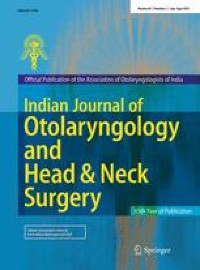|
Medicine by Alexandros G. Sfakianakis,Anapafseos 5 Agios Nikolaos 72100 Crete Greece,00306932607174,00302841026182,alsfakia@gmail.com
Αναζήτηση αυτού του ιστολογίου
Πληροφορίες
Ετικέτες
Πέμπτη 15 Απριλίου 2021
‘’Comparison of Two Surgical Techniques for the Treatment of Transverse Olecranon Fractures: A Finite Element Study’’
A new robotically assisted system for total knee arthroplasty: A sheep model study
|
Efficacy and Safety of Propranolol vs Atenolol in Infants With Problematic Infantile Hemangiomas
|
Rapid Sequence Induction and Intubation for Patients With Hereditary Hemorrhagic Telangiectasia
|
Importance of Margins, Radiotherapy, and Systemic Therapy in Mucosal Melanoma of the Head and Neck
|
Long-term outcomes of dual innervation in functional muscle transfers for facial palsy
|
Evaluation of Metastatic Lymph Nodes in Oral Squamous Cell Carcinoma: A Comparative Study of Clinical, FNAC, Ultra Sonography and Computed Tomography with Post Operative Histopathology
|
A cartilage conserving concept of a surgical tracheostomy-introduction and analysis of safety and complications of the Visor-tracheostomy-a retrospective monocentric comparative study over 8 years
|
Appropriateness for SARS-CoV-2 vaccination for otolaryngologist and head and neck surgeons in case of pregnancy, breastfeeding, or childbearing potential: Yo-IFOS and CEORL-HNS joint clinical consensus statement
|
Update and review of the gerodontology prospective for 2020's: Linking the interactions of oral (hypo)-functions to health vs. systemic diseases
|
Immunotherapy-induced antibodies to endogenous retroviral envelope glycoprotein confer tumor protection in mice
|
Sucralfate as an Adjunct to Analgesia to Improve Oral Intake in Children With Infectious Oral Ulcers: A Randomized, Double-Blind, Placebo-Controlled Trial
|
-
Abstract Objectives To investigate factors related to reasoning skills in 434 school children aged 5–9 years. Methods The Leiter Interna...
-
Publication date: Available online 28 September 2017 Source: Actas Dermo-Sifiliográficas Author(s): F.J. Navarro-Triviño


